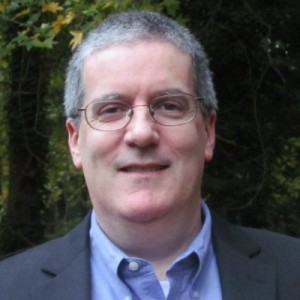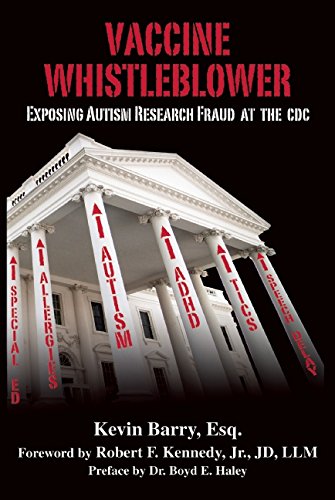
William Thompson
A book review published in The Whistle (Newsletter of Whistleblowers Australia), No. 87, July 2016, pp. 11-12
The potential health hazards of vaccination are a controversial topic, and nothing seems more controversial than alleged links between vaccination and autism. The medical research community stands fully behind the safety of vaccination, citing numerous studies showing that adverse reactions are rare and that there is no link with autism. Yet critics continue to raise the autism connection, pointing to various studies that suggest a positive link.
In this heated issue, whistleblowing is especially contentious and the risks of being a whistleblower unusually great. Dr William Thompson is an experienced researcher working at the US Centers for Disease Control and Prevention (CDC), specialising in vaccine safety. He is the author or co-author of several key scientific papers commonly used to say that vaccination does not cause autism. Yet Thompson kept a guilty secret. He believed that one of his key articles did not tell the full story: it had omitted a finding of increased autism rates in African-American boys following the MMR (measles, mumps and rubella) triple vaccine.*
Thompson's key scientific papers were published in 2004 and 2007. Years later, Thompson began having confidential telephone conversations with Dr Brian Hooker, who had been researching vaccination connections with autism. In the course of these conversations, Thompson revealed what he believed was research misconduct: important findings had been suppressed. He said he was ashamed of his participation.

William Thompson
Without Thompson's knowledge, Hooker recorded four of their conversations, and then went public about what Thompson had said. Thompson applied for status as a whistleblower. Indeed, in the course of his conversations with Hooker, Thompson decided to seek legal advice, so actually he was moderately well prepared for the onslaught following the revelations about his dissenting scientific view.
The book Vaccine Whistleblower documents the saga, which is still ongoing. Most of the book is a transcript of the four recorded conversations, and this material is both tedious and informative. It is tedious because the conversations, like oral testimony, are filled with extraneous material, ranging from ums and ahs to episodes of thinking out loud. The key parts of these conversations could be summarised in a few pages, and that is exactly what the author Kevin Barry does. The transcripts are useful for a couple of purposes. They provide the context for Barry's summaries, for those who want to check. They show, in a way that a summary cannot, Thompson's feelings about the behaviours he witnessed. They also give a sense of Thompson, responding to Hooker's queries, reflecting on his behaviour and gradually opening up to the possibility of going public.
Dr. Thompson: So, I, you know, I told Jack that he was going to be first author; I said, "Because you guys are outside the CDC, we'll have more leverage, 'cause ... You know, you will have fewer constraints than I will."
Dr. Hooker: Right.
Dr. Thompson: And I actually said, "If it gets really crazy, I'm willing to drop off as the coauthor and let you guys just publish because this was the public youth dataset."
Dr. Hooker: Okay.
Dr. Thompson: So, anyways, we did the whole thing; we wrote the manuscript; we initially had pretty strong wording, like what you're saying ...
Dr. Hooker: Right.
Dr. Thompson: … about the association. And then it sat in clearance for a year, and people just hammered away at the paper and watered it down more and more and more. So, you got the manuscript you ended up with, which is the published manuscript - not the published; you ended up with the final, cleared manuscript with just the most, you know, whitewashed discussion ever." (pp. 80–81)
Hooker's recording of conversations without Thompson's knowledge is questionable. This is not the usual way whistleblower revelations reach the public. More commonly it is whistleblowers who covertly record the conversations of bosses and co-workers involved in nefarious activities. In both cases, though, the argument can be made that exposure serves the public interest and justifies the betrayal of trust involved in covert recordings.
It is a sign of the great interest in the vaccination controversy that a book could be published based on covertly recorded conversations. Author Kevin Barry provides an executive summary of the calls and a series of short chapters on the significance of the transcripts and implications for action.
Because the vaccination debate is so polarised, so likewise is discussion about Thompson. A look online will reveal reviews of Vaccine Whistleblower that laud Hooker and Thompson and others that fiercely condemn them and dismiss Thompson's concerns. The clash over vaccination is so vehement that it is difficult to obtain a balanced view of the role of whistleblowing in the saga.
Thompson turned over 100,000 pages of documents about research on vaccine safety to a member of the US Congress, but it seems unlikely Congress will hold hearings. An alternative, in the tradition of WikiLeaks, would have been to put the documents on the web for everyone to read. However, few will ever read volumes of original documents. For every whistleblowing issue, there is a vital role for journalists, researchers and campaigners who publicise the story. The book Vaccine Whistleblower is part of this process.

Kevin Barry, Vaccine whistleblower: exposing autism research fraud at the CDC (New York: Skyhorse, 2015)
* This review originally stated that MMR vaccines contained the adjuvant thimerosal. This is incorrect: they never did. Several other vaccines previously contained thimerosal; only some flu vaccines now do.
Brian Martin's publications on suppression of dissent